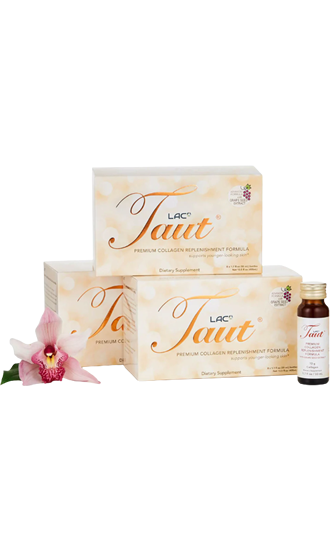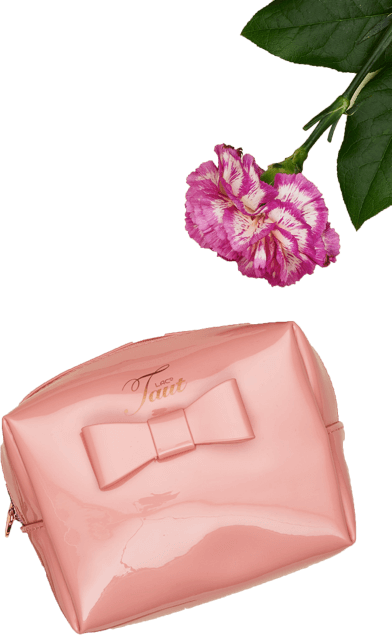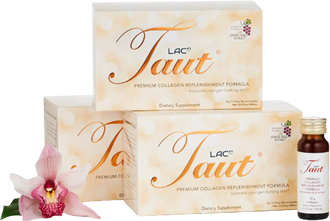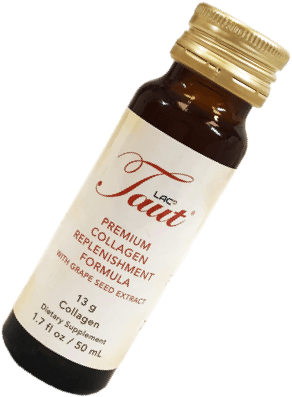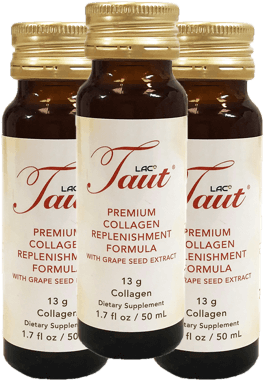Clear Skin Diet: Best Foods To Eat For Acne Free Skin (Anti Acne Diets)
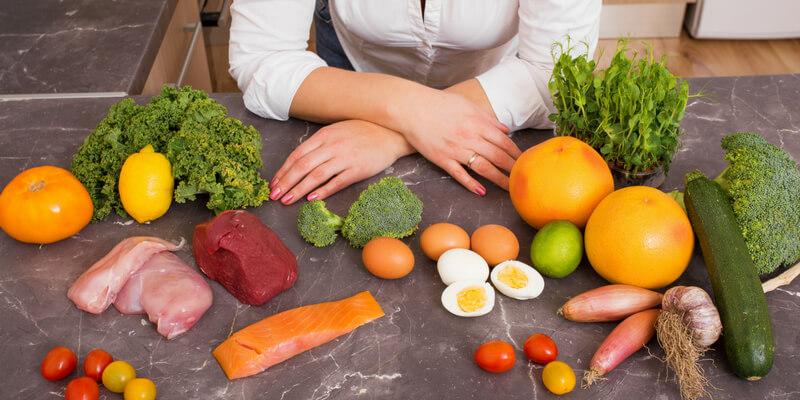
Aging is kind of a bummer, am I right?
Even though our mothers gave us the heads-up that things are going to change, we then wake up one morning (approximately at age of 35, in my case) and realize that 1) Things HAVE changed, along with 2) Mom was right…AGAIN. And unfortunately, our skin is usually the first place where we experience the effects of aging because the changes in hormones, the toxins in our environment, and the quality of our diet all have a direct impact on our dermis.
From dryness to volume loss, fine lines, and cellulite, to perhaps even the oh-so-unfair adult-onset acne — time has a way of wreaking havoc on our once pristine skin.
The great news is, we can reduce these effects by nourishing our skin from the inside out by following a clear skin diet. Beauty does come from the within, after all!
As a registered dietitian, I’m here to provide you with a few proven nutrition tips and real-life tricks that you can apply to your day-to-day routine in order to nourish your skin so it is glowing and healthy for years to come.
What Causes Acne?
Before we get into my tips for maintaining a diet for acne-free skin, let’s quickly go over what causes this skin condition. Acne happens when sebum (oil), dirt, bacteria, and dead skin clog our pores. Our hormones can affect the amount of oil that our skin naturally produces — a fluctuation in hormones can cause an increase in our skin’s oil production. That’s why many of us had to deal with pesky breakouts during our teen years.
And unfortunately, some of us are still plagued with acne and blemishes, despite being well out of our teens. One of the biggest players when it comes to adult acne is our hormones. Hormone changes when we’re in our 30s and 40s can cause breakouts and greatly affect the quality of our skin. These changes and imbalances in our hormones can be caused by biological factors, like our genetics, certain health conditions, and even our diet. You read that right: the foods that we eat on a day-to-day basis can impact our hormones and make us more prone to acne.1
If you want to minimize the effects of your hormones on your skin, changing your diet is one of the best ways to do so. While overhauling your diet just to improve your skin’s beauty may feel overwhelming or superfluous, don’t throw in the towel just yet. A healthy skin diet doesn’t have to be restrictive or complicated. And, besides clearing your skin, you may experience other benefits like improved health, increased energy, and more beauty sleep.
Who says you can’t change your diet to start looking better and feeling better?
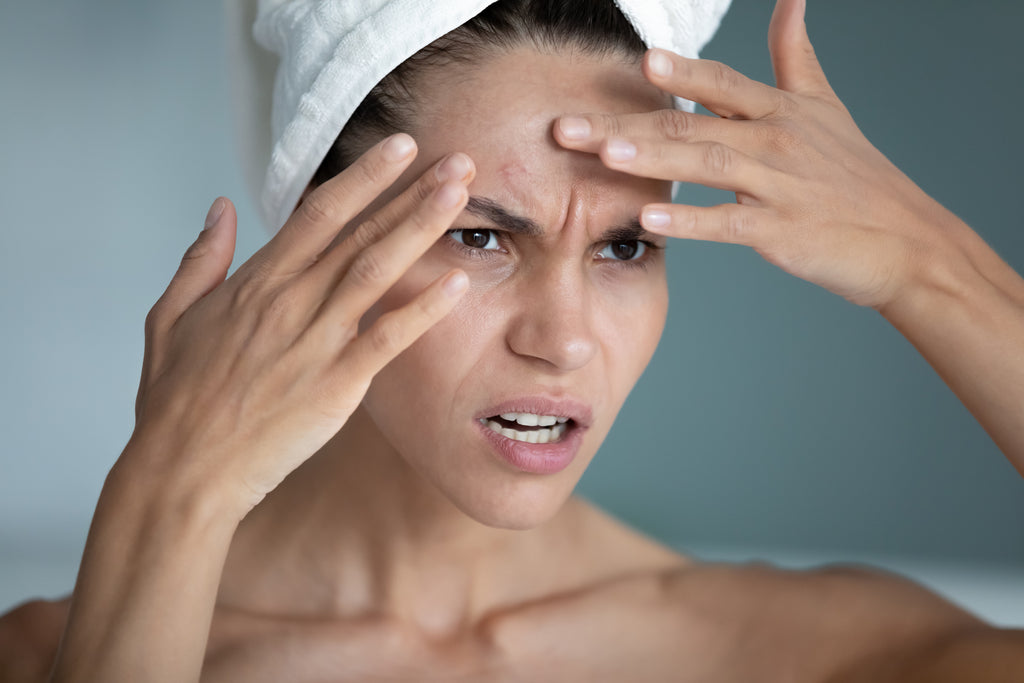
My Top 5 Nutrition Tips For Glowing Skin (Best Diet For Acne Prone Skin & Fewer Wrinkles)
1. Eat The Rainbow
Stay with me, here! We know you are tired of hearing that you need to eat more fruits and vegetables, but you really need to get more fruits and veggies into your diet! If not for your waistline, at the very least eat them to support healthy, clear, and younger-looking skin.
Low-glycemic foods are truly the ultimate solution if you want to achieve acne-free skin and a better complexion. A wide variety of fruits and veggies in your diet on a regular basis will ensure you are fueling your body with foods that are high in antioxidants. These nutrients are essentially your internal front-line defense against an army of free radicals. Even board-certified dermatologist Heather Woolery Lloyd, MD says that peer-reviewed research has shown that a diet rich in antioxidants can result in a “younger-looking” complexion.2
That’s because free radicals are the bad guys. Without getting too geeky here, free radicals are the result of oxidative stress. They like to bust up our normal, healthy dermal cells and make a bit of a mess. And, they especially like to attack your natural collagen.
This process is believed to be the key contributor to the many negative side effects of aging and has even been connected to the development of cancers, atherosclerosis, Parkinson’s disease, and Alzheimer’s disease.
So, not just your complexion, but your whole body will thank you for reinforcing your front-line defense against aging by eating more fruits and vegetables.
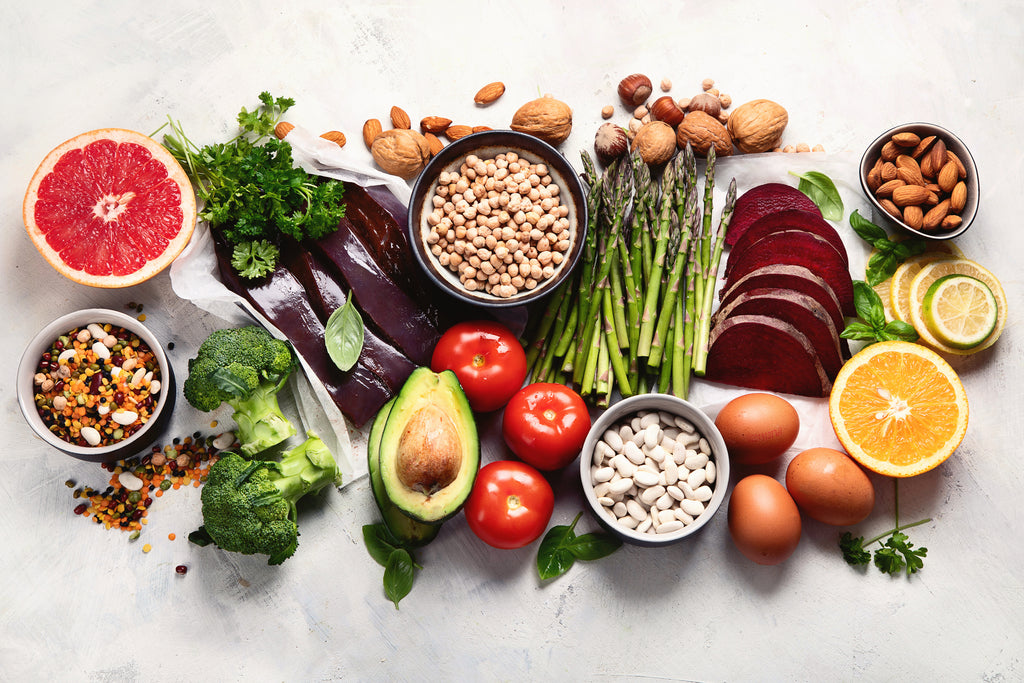
My Cheat Sheet To Supplements For A Wrinkle & Anti Acne Diet: Vitamins, Minerals, & Antioxidants (Oh My!)
The foods that clear acne and support dermal health often have high levels of these vitamins, minerals, and antioxidants. When buying supplements, make sure to look for products that are based on the latest science and have specific studies listed to support their formulation.
Vitamin C
One of the most well-known vitamins in our food supply for being an overall powerhouse nutrient for wrinkle and acne free diets is vitamin C. It contains essential antioxidants that fight free radicals, reduce inflammation, and promote collagen production. Vitamin C can be found in citrus fruits, berries, leafy green vegetables, sweet potato, green peppers, broccoli, and more. This powerful vitamin can also be taken as a supplement.
Taut Bright (A Supplement With Beauty-Enhancing Ingredients)
A supplement whose main purpose is to enhance your skin’s natural beauty by fighting free radicals, and lightening hyperpigmentation and age spots is Taut Bright Bye Bye Dark Spots.
It’s an essential supplement for anyone on a diet to clear acne who wants to even and brighten their complexion. It contains 7 key ingredients, one of those ingredients being Glutathione which is considered to be the mother of all antioxidants.
Glutathione is found inside every cell of our body and this protein is able to both detoxify the cells and boost the immune system to reduce pigmentation, brighten the skin, and lessen the effects of aging. Taut Bright also contains L-cysteine, vitamin C, olive leaf extract, artichoke leaf extract, grape seed extract, and alpha-lipoic acid to heal and protect the dermis.
Just one of these supplements per day and the proprietary formula gets to work to protect the skin from cellular damage and inhibit the production of melanin, which causes dark spots, age spots, and uneven pigmentation, leaving you with a brighter, more luminous complexion.

Vitamin E
Vitamin E is good for acne-prone skin because of its anti-inflammatory health properties. This vitamin is fat-soluble, meaning that it may be more effectively absorbed when combined with a little bit of good, healthy fat (like olive oil or avocado oil). Foods that have a high content of vitamin E include wheat germ, nuts, seeds, whole grains, and green leafy vegetables. Harvard Health says that most of us need to get around 15mg of vitamin E a day.3
Beta-Carotene
Beta-carotene is an antioxidant that converts into vitamin A in the body through metabolic processes. When added to a diet for clear skin, in a week it can promote healthy skin cells and reduce inflammation. This antioxidant can be found in bright, rich-colored produce such as carrots, squash, broccoli, sweet potato, tomatoes, collard greens, kale, and more.
Lutein
Lutein is another carotenoid that is famous for benefiting eye health and supporting the skin. It can be found in food like okra, red pepper, kale, spinach, collard greens, and other green leafy veggies. A peer-reviewed article from the European Journal of Nutrition says that although adults usually consume around 1-2mg of lutein a day, it’s considered safe to get around 20mg of lutein a day.4
Zinc (Benefits of Zinc For Skin)
One of the best minerals for supporting clear skin is zinc. Board-certified dermatologist Joshua Zeichner, MD says that food, supplements, and topical treatments that contain zinc may reduce acne breakouts because of its ability to decrease oil production in the dermis, ward off harmful bacteria, and reduce inflammation.5, 6
Zinc can be found in foods such as oysters, red meat, poultry, nuts, seafood, beans, dairy products (such as dairy milk and cheese), and whole grains.7
Flavonoids
Flavonoids are a subset of polyphenol compounds that are naturally found in many plant-based foods. Without boring you to tears with information on the MANY types of polyphenols and flavonoids, the bottom line is that they are powerful antioxidants.
As a general rule, most fruits, vegetables, and herbs contain some combination of these various compounds and scientists are still learning about their functionality in the body.
Foods that have a high content of flavonoids include berries, grapes, red wine (resveratrol, in particular), coffee, green tea, dark chocolate, citrus fruits, and nuts.
Not only can a diet rich in antioxidants keep your complexion healthy, but skin care products that include antioxidant ingredients may improve your skin when added to your skincare routine.
The Taut Intensive Recovery Face Serum is a revolutionary skin care product that contains 7 powerful botanical ingredients with scientifically-proven antioxidant properties that help fight inflammation and reinforce your skin barrier.
The herbal ingredients, German chamomile, hydrocotyle, licorice root, Japanese knotweed root, rosemary, green tea, and Scutellaria root sink deep into the layers of the dermis and repair and protect the skin from damage caused by environmental pollution, sun exposure, and harmful toxins. As they improve pigmentation, these ingredients simultaneously rehydrate dry skin to prevent acne and any further damage.
Not only is it a great choice for women who want to reduce the visibility of aging skin, but the botanical ingredients (green tea in particular) may help moderate sebum production to reduce breakouts and brighten the skin. You can thank me later.
How Do You Eat More Fruits & Vegetables Every Day To Keep Your Skin Healthy?
Don’t overthink it, just do it! Aim for 2-3 servings of fruit per day, and 5 servings of veggies per day. Or, if you don’t want to count servings, make half of all of your meals (breakfast, lunch, and dinner) fruits and vegetables.
Another way to include more produce into your diet is by making (or seeking out) plant-based, healthy juices or smoothies, vegetable-based soups and stews, and salads. These foods can help you sneak in the goodness of produce, without overthinking it.
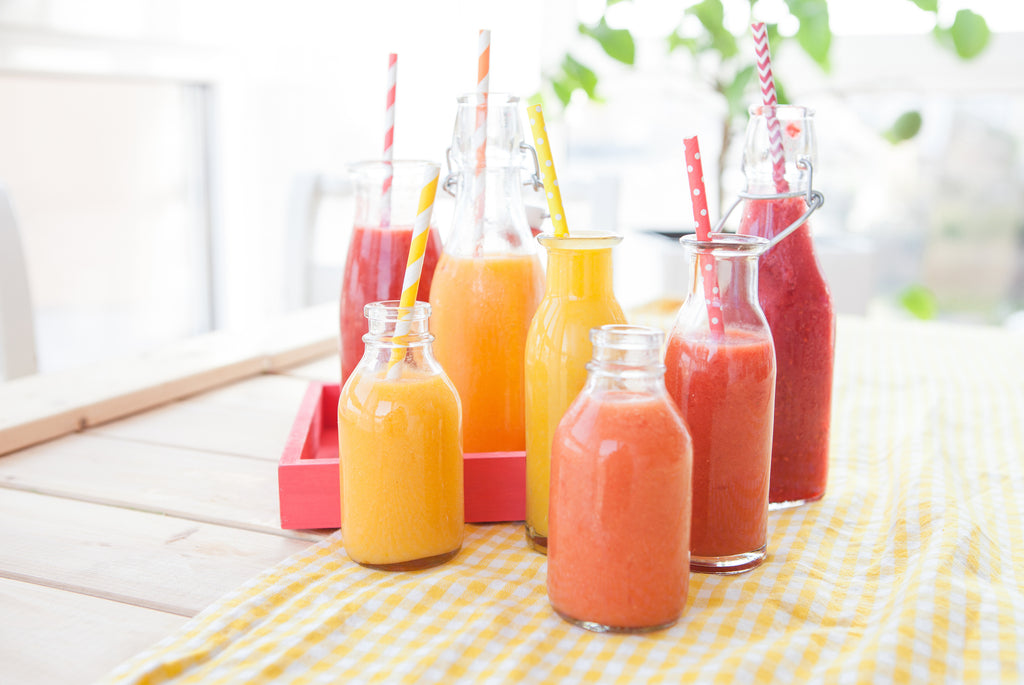
2. Don’t Skimp On Protein (Wrinkle & Acne Free Diet Plan)
In our busy, package-food-driven American lifestyle, it is very easy to rely on eating high-carb, processed foods (5-minute mac and cheese, anyone?).
Yes, we can merely survive on such foods, but it certainly is not ideal to be eating these foods every day. Besides missing out on the anti-aging goodness from colorful produce, by eating a diet of processed foods, we also miss out on much-needed protein which is crucial to maintaining lean body mass (aka, muscle, and that sexy shape of yours!) and, providing our dermis with the essential building blocks to support collagen regeneration (aka the protein that helps us maintain our beauty, firm skin, and youthful appearance).
After eating dietary protein, it’s broken down into amino acids. These amino acids then go to work on thousands of different metabolic reactions, including the regeneration and building of muscle tissue, as well as the regeneration of collagen density in our skin cells. Therefore, if you skimp on foods with quality protein in your diet, it’s possible to not only lose valuable muscle mass, but also put your clear complexion at risk.
And, since the body’s ability to regenerate collagen in our skin cells and throughout our body declines as we age, this can be a double-whammy to your skin’s fullness and overall integrity. No bueno.
What To Eat In A Day
Whether you prefer to have three square meals throughout the day (and some snacks) or practice intermittent fasting, what you eat during your meal times is going to have a direct impact on both your dermis and your health.
Are you wondering what to eat to achieve a radiant, clear complexion? My first tip: Include a source of protein at each meal or snack.
Do you need to become a meathead to keep your skin clear? Absolutely not! Instead, I’ve put together these general protein guidelines and tricks to make sure you’re giving your body what it needs.
Here’s an example of what to eat to clear acne and improve your skin health:
- Breakfast: A smoothie, made with ingredients like 1 cup of dairy milk, or non-dairy milk (such as almond milk or oat milk), 1 cup of berries, ice, and 1 to 2 scoops of vegetarian-based protein powder
- Mid-morning snack: A medium banana with 2 tablespoons peanut butter
- Lunch: A large mixed salad (with greens like kale and spinach) topped with 3 to 4oz. of grilled chicken or salmon , and olive oil
- Mid-afternoon snack: Carrots, cherry tomatoes, a piece of mozzarella string cheese , and green tea
- Dinner: A bowl of homemade chili made with ground chicken or turkey, served with a colorful side salad with an olive oil or avocado oil-based dressing
Other helpful tips:
- When choosing convenience bars (such as protein bars, breakfast bars, etc.), look for 7 to 14g of protein for a snack, 20 to 25g of protein for a meal replacement.
- If you are vegan or avoid dairy (like milk), you may want to read the nutrition panels for milk substitutes (non-dairy milk options include almond, soy, cashew, etc.) to check their protein content. It may be wise to add 1 scoop of a vegan or vegetarian protein powder to your glass of milk to increase its protein content (aim for 7 to 14g per serving in dairy or dairy substitutes).
- Drink plenty of water throughout the day to stay hydrated.
- Avoid high-glycemic foods like sugar and white bread. These foods are not nutrient-dense and may make acne and inflammation worse.
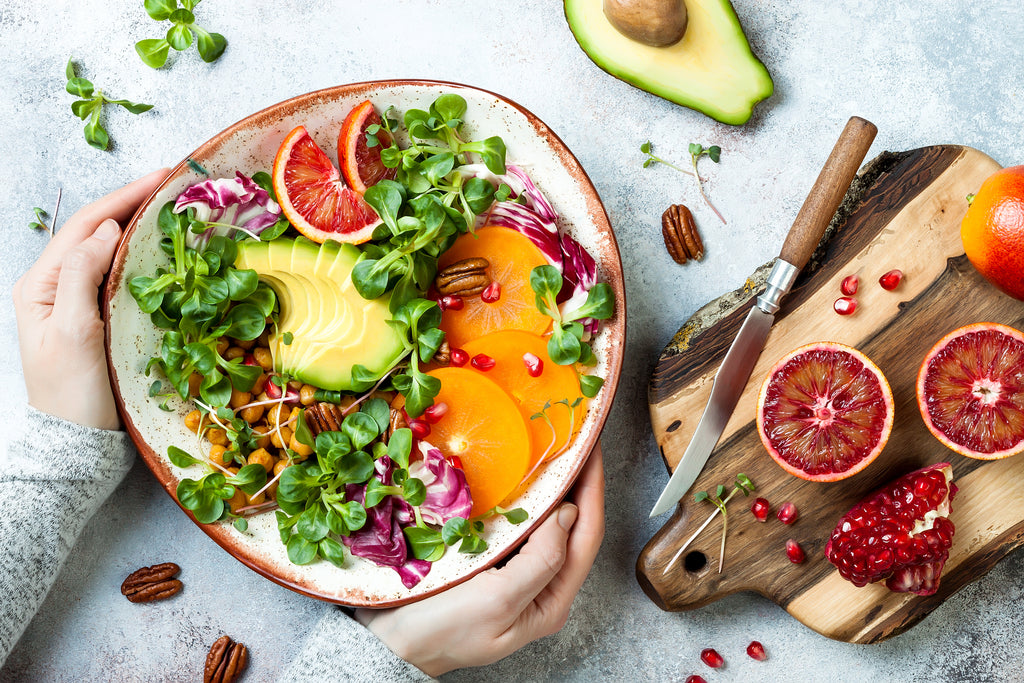
3. Lower Your Sugar Intake
While it’s important to have a diet rich in produce and protein, reducing how much sugar you eat throughout the day is essential to reducing acne and improving the quality of your skin.
Foods with a high fat content are often thought of as “bad” because oil is associated with making acne worse. However, food that has a high glycemic index value, such as white bread and sugar, will make your blood sugar levels rise. And, when your blood sugar rises, your pancreas produces insulin, and insulin’s job is to take the sugar out of your blood and give it to your cells.
While this is a natural process, eventually this continual spike in blood sugar and insulin can cause chronic inflammation which can lead to health issues, such as insulin resistance and diabetes.
How does this affect your skin? High blood sugar and insulin can throw off your normal hormone levels. And, as we’ve discussed above, unbalanced hormones can put oil production in your skin into overdrive and increase acne breakouts.8
High-Glycemic Vs. Low-Glycemic Foods
Most diets for clear skin encourage eating low glycemic foods. Why? Because sticking to low-glycemic foods may be the most effective way you can keep your blood sugar and insulin levels low to prevent acne. Even the American Academy of Dermatology Association says that a low glycemic diet may be beneficial for maintaining a clear complexion.9
Some foods to eat to clear acne that have a low-glycemic index value include:
- All meat and seafood
- Dairy products, like cheese, yogurt, and milk (although, some research shows a correlation between dairy and acne) 10
- Many veggies, especially dark leafy greens
- Berries like strawberries, blueberries, and raspberries
- Beans like lentils and garbanzo beans
- Healthy fats like olive oil and avocado oil
High-glycemic index food to avoid on a skin clear diet:
- Whole wheat and white bread
- Pasta and noodles
- Breakfast cereals
- Refined sugar
- Starchy produce like potatoes and bananas 11
While grocery shopping, you may want to check out the ingredients list on the back of any packaged foods. You might be surprised by the ingredients in some of your favorite “healthy” foods.
4. Increase Healthy Fats & Omega 3 Fatty Acids
Down with low-fat foods! That “health” food trend is long gone. Why? Because the food industry has been replacing fat with other ingredients (read: sugar) in “reduced calorie,” “low fat,” and “light” foods for years now and falsely demonizing fat. And, as we mentioned earlier in this article along with all of the other information we have on the effects of sugar on the beauty and health of our skin, I’d much rather replace the sugar in my diet with fat. 12, 13, 14
As you can probably tell by now, I’m all about embracing and eating more nourishing, healthy fats in our skin diet. The skin benefits from these fats, especially if we use them often in our day-to-day meal routine.
Why are these fats so good for us? Healthy fats, such as olive oil, avocado oil, and coconut oil, contain anti-bacterial, wound healing, and anti-inflammatory health properties, along with antioxidants that may support all of the cells in the body, including skin cells. Olive oil and other good fats truly bring out our inner beauty by giving us a radiant glow.
One type of healthy fat that you should be eating every day (or at least every other day) is skin-plumping omega 3 fatty acids. Omega 3 fatty acids make up the top layer of the skin. When that layer is healthy, your skin is able to retain water and stay plump and hydrated, making you look years younger. When it comes to acne, omega 3s may help reduce the appearance of breakouts. A study showed that supplementing with fish oil helped improve the severity of acne in the study’s participants.15
Besides taking fish oil pills, you can get omega 3s from fatty fish (such as salmon and sardines), along with plant sources like walnut oil, chia seed oil, and flaxseed oil.
5. Drink More Water (The Importance of Hydration For Anti Acne Diets)
Water, water, water!
Granted, 100% juices, fruits, vegetables, soups, and other beverages all contribute to your overall hydration status, but good ol’ water sure does the body (and skin) some good. While drinking water is almost always a good idea for overall health, it can also keep your complexion looking clear and radiant.
When your dermis is dry, it creates excess sebum to keep it moist and functioning properly. This excess sebum can clog pores and lead to stubborn breakouts. By drinking water, you’re not only hydrating your body, but your dermis as well.
Everyone has different water intake needs, but the longstanding recommendation has been to get a minimum of 64oz, or 8 glasses, of water daily. While recent studies do not claim this to be a hard and fast rule for adequate hydration, it certainly doesn’t hurt to aim for this amount.
Nowadays you can find supplements to improve hydration and water retention throughout your skin and body, like the Taut Hydrate vegan supplement. These plant-derived hyaluronic acid pills work to hydrate and plump your skin from deep within.
Hyaluronic acid is a naturally-found ‘moisture magnet molecule in your body that can hold up to 1,000 times its own weight in water. By supplementing with it, your body’s natural hyaluronic acid levels increase significantly, meaning that the water that you drink actually stays in your skin, leaving you with a bouncy, smooth, and radiant complexion.
By replenishing your skin’s hyaluronic acid, you can fight moisture loss which helps prevent acne and the early of signs of aging, like wrinkles and fine lines. The supplement also contains grape seed extract, which is a powerful flavonoid that helps protect the skin’s collagen from free radicals on a cellular level. Just 2 capsules per day can enhance your natural beauty and achieve supple, youthful-looking, and healthy skin.
Turn To Taut Collagen For Clear Skin & Fewer Wrinkles
Maintaining a healthy diet for acne prone skin and wrinkles is one of the best ways to keep your complexion clear and delay and reduce the signs of aging from impacting your skin. But, even the best diet for clear skin and fine lines cannot support your natural collagen levels and the overall appearance of your complexion like a daily collagen supplement can.
Obviously, as a dietitian, I have not only thoroughly reviewed, but have also tried the Taut Premium Collagen Advanced Formula. Once I learned about the science behind this powerful collagen drink (and saw the results in my own skin) I was instantly hooked.
Each bottle is packed with 13,000mg of hydrolyzed collagen sourced from wild-caught red snapper from the Indian Ocean. This type of highly potent collagen is incredibly effective at slowing down and reducing signs of aging such as wrinkles, fine lines, and sagging skin.
What makes it different from your average collagen drink? It contains a high percentage of nano-sized collagen peptides which are able to enter your bloodstream almost immediately through Taut’s Rapid Delivery System (or RDS). Once your system detects the high concentration of peptides, it immediately triggers a “wound repair” response, which tells your cells to boost collagen production.
This is a supplement that I am confident in recommending to those who are looking to support and supplement their skin clearing diet for truly remarkable, anti-aging results.
In addition to tasting great (bonus!), this quick and easy supplement is a great way to combine the power of vitamins and antioxidants (like grape seed extract, vitamin C, vitamin B6, and ceramides) with hyaluronic acid and collagen protein to support skin health and fight aging, from the inside out.
Finally, Taut has put together a selection of their most revitalizing products to help you rejuvenate tired, dull, and damaged skin: The Ms. Magnifique Transformation Program.
Along with their Collagen Drink, Taut has united two of their most synergistic and natural products to fade acne scars, hyperpigmentation, and fine lines: Taut Bright and Taut Collagen Mask. While Taut Bright works to even your skin, the Taut Collagen Mask gives you instant rejuvenation and ‘red-carpet’ radiance when you need it most. This transformation program is the perfect way to look and feel amazing from head to toe.
But don’t just take my word for it - see the difference for yourself!
If you’re ready to enhance the results of your wrinkle and acne fighting diet, give any of Taut’s Transformation Programs a try. All of Taut’s skin-enhancing programs are available by auto-ship subscription, so you never run out of your go-to anti-aging products.
Want to learn more? Contact the customer service team today!
References
- Impact of Dietary Glycaemic Index on Energy Intake and Salivary Steroid Hormones
- Foods to Nourish Your Skin, According to a Dermatologist
- Easy does it with vitamin E
- Dietary Guidance for Lutein: Evidence-Based Intake Recommendations
- Clinical Effects of Zinc on Acne: A Systematic Review of Topical and Oral Applications
- The 11 Best Vitamins for Acne of 2024
- Overview of Zinc: Importance, Sources, Functions, and Recommended Intakes
- How Diet and Glycemic Index Affect Acne Severity?
- Can the right diet get rid of acne?
- Milk Consumption and Acne: A Meta-Analysis of Observational Studies
- Glycemic index for 60+ foods
- Systematic Comparison of Sugar Content in Low-Fat vs. Regular Food Options
- 50 Years Ago, Sugar Industry Quietly Paid Scientists To Point Blame At Fat
- Sugar Industry and Coronary Heart Disease Research
- Effects of fish oil supplementation on inflammatory acne


